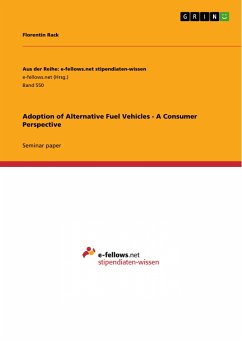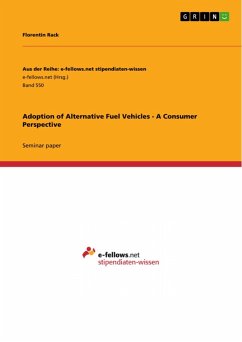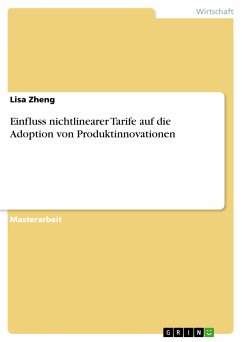Seminar paper from the year 2012 in the subject Business economics - Offline Marketing and Online Marketing, grade: 1,6, EBS European Business School gGmbH, language: English, abstract: When discussing the future of the automotive industry, there is probably just one thing politicians, corporations, and customers agree on: That there is a need to develop and establish alternative fuel vehicles (APV) in the future. There are multiple reasons to reject the conventional, petroleum-based fuels. While nobody can surely say when peak oil is reached, we cannot rely on oil forever. This and the dangerous dependency on a few oil-exporting rogue states, coerce us to look for alternatives for fuelling cars and other vehicles. The motivation for consumers to buy an alternative fuel vehicle can be economic (e. g. rising petrol prices) or ideological (e. g. energy sustainability , pollution reduction, climate change ) (Byrne & Polonsky, 2012, p. 1535). This literature review will outline present findings regarding which alternative fuels possess the most potential and which factors drive consumer adoption of AFVs in general.









